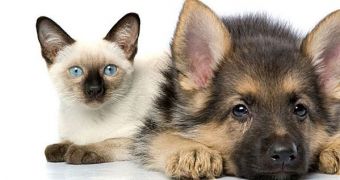We’ve become accustomed to referring to our pooches and cats and whatever other animal we keep around the house as “pets,” while we identify ourselves as their “owners.” These are the very words a new “animal language” aims to make obsolete.
The problem with these terms is that they instantly put the animal on an inferior position when compared to man, as if the animal did not have feelings and a mind.
This is precisely why animal rights academics have joined forces in a bid to change this mentality.
The only way they can do that is by making these “derogatory” terms obsolete, by replacing them with new ones, the Daily Mail informs.
The proposal appears in the first issue of the Journal of Animal Ethics, published by the University of Illinois Press, and aims to start the discussion over the moral status of animals on an international level.
“Despite its prevalence, ‘pets’ is surely a derogatory term both of the animals concerned and their human carers,” the paper reads.
“Again the word ‘owners,’ whilst technically correct in law, harks back to a previous age when animals were regarded as just that: property, machines or things to use without moral constraint,” says the proposal.
These two are not the only terms that should be replaced either: there are also those referring to wild animals and vermin.
“In addition, we invite authors to use the words ‘free-living,’ ‘free-ranging’ or ‘free-roaming’ rather than ‘wild animals’,” the authors of the paper argue.
Similarly, the term “wildness” will have to be taken out of the vocabulary as well, because it comes with negative connotations, of uncivilized and barbarous, which doesn’t apply to animals in the wild.
“Our existing language about animals is the language of past thought – and the crucial point is that the past is littered with derogatory terminology: ‘brutes,’ ‘beasts,’ ‘bestial,’ ‘critters,’ ‘sub-humans,’ and the like,” the authors argue.
“We shall not be able to think clearly unless we discipline ourselves to use less than partial adjectives in our exploration of animals and our moral relations with them,” they add.

 14 DAY TRIAL //
14 DAY TRIAL //